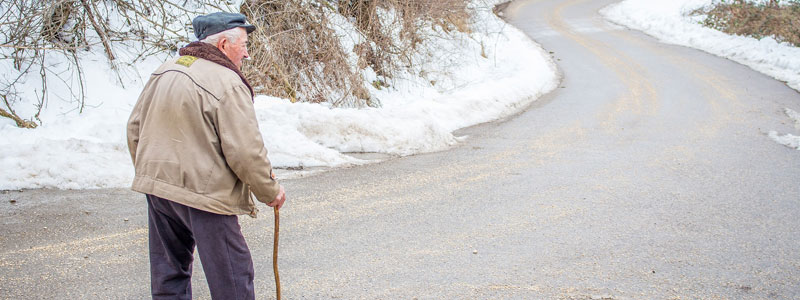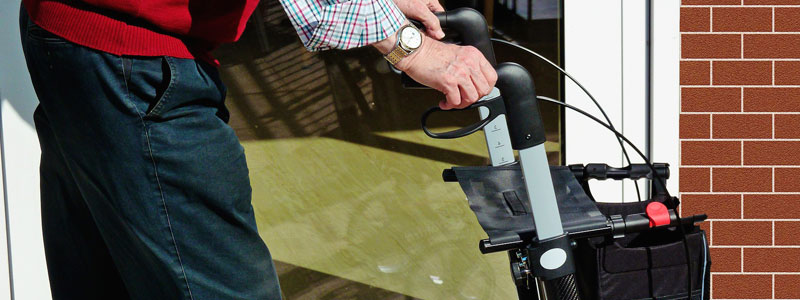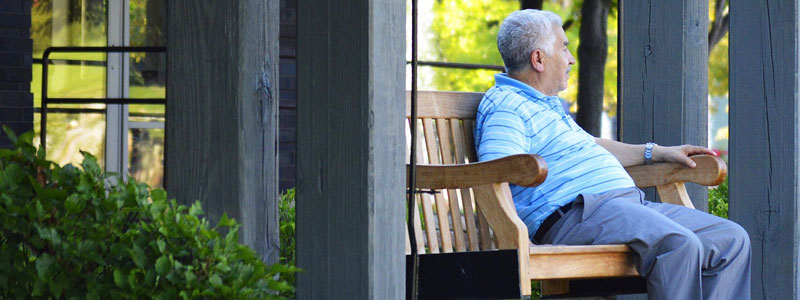What Happens When a Resident Wanders Away from a Nursing Home?
In previous articles, we’ve tried to raise awareness about the ways in which nursing homes or other long-term care providers can cause harm to their residents through acts of abuse or neglect within the walls of their facility. However, these residences can also cause indirect harm through negligent behavior if a resident leaves the premises […]

March 23, 2018

In previous articles, we’ve tried to raise awareness about the ways in which nursing homes or other long-term care providers can cause harm to their residents through acts of abuse or neglect within the walls of their facility. However, these residences can also cause indirect harm through negligent behavior if a resident leaves the premises and is later injured.
Under what circumstances are nursing homes liable when their residents are hurt off-site? Does this mean no one is allowed to leave these types of facilities?
A Nursing Home’s Responsibility

When a long-term care provider takes on a new resident, they are legally obligated to serve that person with “due care.” The duty of care is common to all personal injury cases, and applies differently in each one.
For nursing homes, who take on residents with a variety of care needs, this standard can be hard to define without knowing the specifics of a situation. In general, the care provider must take every reasonable precaution to protect residents from anticipated harm.
This means the provider must not only recognize dangerous situations (according to the limitations of each resident), but also prevent them from causing harm to those at risk.
When Residents Wander
Long-term care residents who wander away from their home are said to have “eloped.” This legal term describes unsupervised wandering that results in an accident.
For residents who are known to become confused or those who pose health risks when they move around unsupervised, the nursing home’s duty of care may include preventing them from leaving the premises. However, this doesn’t guarantee the facility’s liability in the case of elopement, especially if the episode was unforeseeable.
The Risk of Wandering Residents

Part of the definition of “elopement” involves an accident or injury. This can be a slip and fall or a variety of other possible injuries, including the following:
- Physical injury
- Complete disappearance
- Death
- Extended exposure to the elements
- Emotional distress (caused to family members/caregivers)
Any of these injuries could classify an episode of wandering as elopement, but the nursing home still may not be liable for the accident unless they were clearly negligent.
When a Nursing Home Is Liable

Long-term care facilities are responsible for continually and thoroughly evaluating the needs of their residents, both physically, mentally, and emotionally. The nursing home can be held liable for negligence in protecting residents from harm based on their evaluation in one of three ways.
Improper or Inappropriate Initial Evaluation
Before residents move into long-term care, they undergo intake examinations to determine the level of care needed and whether the facility is equipped to handle the person. The intake or the continuing evaluation process should test for common risk factors to keep the nursing home staff informed of potential dangers and take appropriate action to prevent them.
They must remain cognizant of residents’ tendencies and conditions. When these are not identified and later cause an accident, the nursing home could be held liable.
Inadequate Staff Training
Accurate and thorough evaluations are powerless without a staff of trained professionals who can implement safety procedures. When a resident is known to wander, the nursing home is responsible for assigning staff members who can recognize and correct dangerous situations to monitor the resident on a regular basis. Failure to do so could result in liability for elopement.
Failure to Execute Procedures
If the nursing home has identified wandering residents and assigned them staff members to watch out for risky behavior, yet fails to take action when the resident attempts to leave, they may be liable for elopement. The best intentions mean nothing if people fail to act or safety systems like alarms and door locks aren’t used.
Help from an Indiana Nursing Home Negligence Attorney
It’s a nursing home’s responsibility to make sure your loved one won’t leave the safety of the home without proper supervision. If your loved one then suffers an injury after wandering away, you not only feel the stress of their wellbeing, but also of losing trust in the care provider.
In these difficult moments, know that your frustration is valid; the provider is responsible for their own negligence. But if the prospect of filing a negligence claim or lawsuit intimidates you, know that Hensley Legal Group is on your side. Contact one of our lawyers today for a free conversation about your situation.
Available 24/7
Free Case Review
You won’t pay any fees until we win your case.
It’s easy - you can: